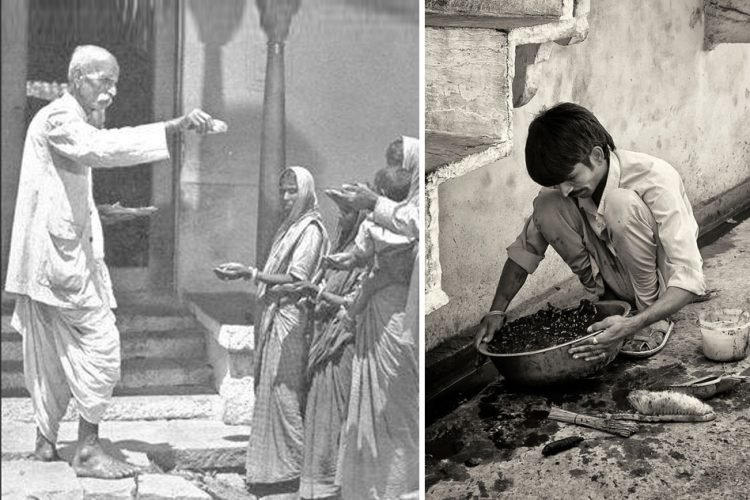A study to understand social prejudices against women and Dalits in India was published recently in the Economic and Political Weekly (EPW). This study was exploring explicit prejudice – "beliefs and behaviours to which people openly and readily admit that reinforce the lower social status of people in oppressed groups.". This study was conducted by Diane Coffey, Payal Hathi, Nidhi Khurana and Amit Thorat who are in one or the other way affiliated to the research institute for compassionate economics (r.i.c.e).
The authors have been able to document that the practice of Untouchability was very much prevalent in the society in spite of it being outlawed since 1950 with the adoption of the Indian Constitution in 1950; The practice of Ghunghat ( women covering their head or face with a sari or a dupatta) is still very much alive. The study also found that fifty percent of the people surveyed did not approve of women working outside their homes if the husband was earning sufficiently. This shows that India though it has developed economically, on the social front, the country hasn't made much of a progress.
The data was collected through a telephonic survey which was conducted in four places – Delhi, Mumbai, Rajasthan and Uttar Pradesh with a sample size of 8,065. This research comes as a surprise for many who think that caste and gender discrimination are things of the past and do not occur anymore.
Are women given the same status as men?
More than 50 percent of the men who were interviewed said that women should not work outside their homes. There was no major difference compared to urban and rural areas except Uttar Pradesh which recorded slightly higher than 60 percent.
The study states that women who practice Ghungat do not have much say in the matters related to themselves. Almost all the households that were interviewed have women who practised it. Rajasthan had the highest percentage (98%) of women practising Ghungat, both in rural and urban areas, in the age group 18 – 60 years of age. Delhi had a lesser percentage of women following this practice.
The most common practice that has not changed for ages and which directly has a bearing on women's health is eating. It was reported that 60 percentage ate after men in rural Uttar Pradesh and nearly 33 percent in Delhi.
Discrimination against the Dalits
In this research, the authors have also captured two forms of explicit prejudice against the Dalits. One, untouchability is being commonly practised against the Dalits; two, there was complete disapproval of marriage into a Dalit family by the non-Dalits and later has also demanded that the government should enact laws to prevent such marriages from taking place.
Speaking to Newsclick Amit Thorat said that this idea to do the survey came from the earlier study on untouchability. "We wanted to take people's perceptions of various other things including untouchability … when we did the previous study we thought just 27 percent people agreeing to practice untouchability was an underestimate," he said.
In this study, it was found that untouchability against the Dalits was observed by the respondent or their family members. The female respondents interviewed had said untouchability was practised between the range 39 to 66 percent in their family and the male respondents said it was on the range between 21 to 50 percent in their families.
On the issue of inter-caste marriage, Amit added, “In our previous study we saw that only five percent of the marriages that took place were outside one's community. We wanted to know what people thought about inter-caste marriages so we asked the question if they wanted to have a law to prevent such marriages.”
This study gives useful insights into how a majority of the society thinks on crucial social issues and how we have not been able to bring a democratic outlook in the societal affairs. Dr Amit Thorat says, “The traditional ideas related to caste and gender should be less entrenched as the country progresses this means that the idea of development we had in our mind is either wrong or we see development just as material gains and prosperity but as we know internationally development now has three pillars – economic, social and environmental. we are not even getting into the environmental aspect at all but even if we are so called progressing economically, it seems that socially we have not progressed”
With a government that supports the “traditional” and the Hindutva worldview at the centre, Dr Thorat says, “certain people are fuelling inter-caste, inter-religious resentment. We are seeing instances of the escalation of public violence and the perpetrators are taking pride and seem fearless to inflict violence and humiliation on marginalised communities. This environment is extremely poisonous and communal developments and the government is not doing enough to control them.”
Thorat added that ours is a society that is not readily adapting to the ideals of democracy, equality and fraternity our Constitution espouses to achieve. So it would be a tall expectation to see that laws that ban the practice of untouchability and support inter-caste marriages are implemented and allowed to reach their desired is results.





